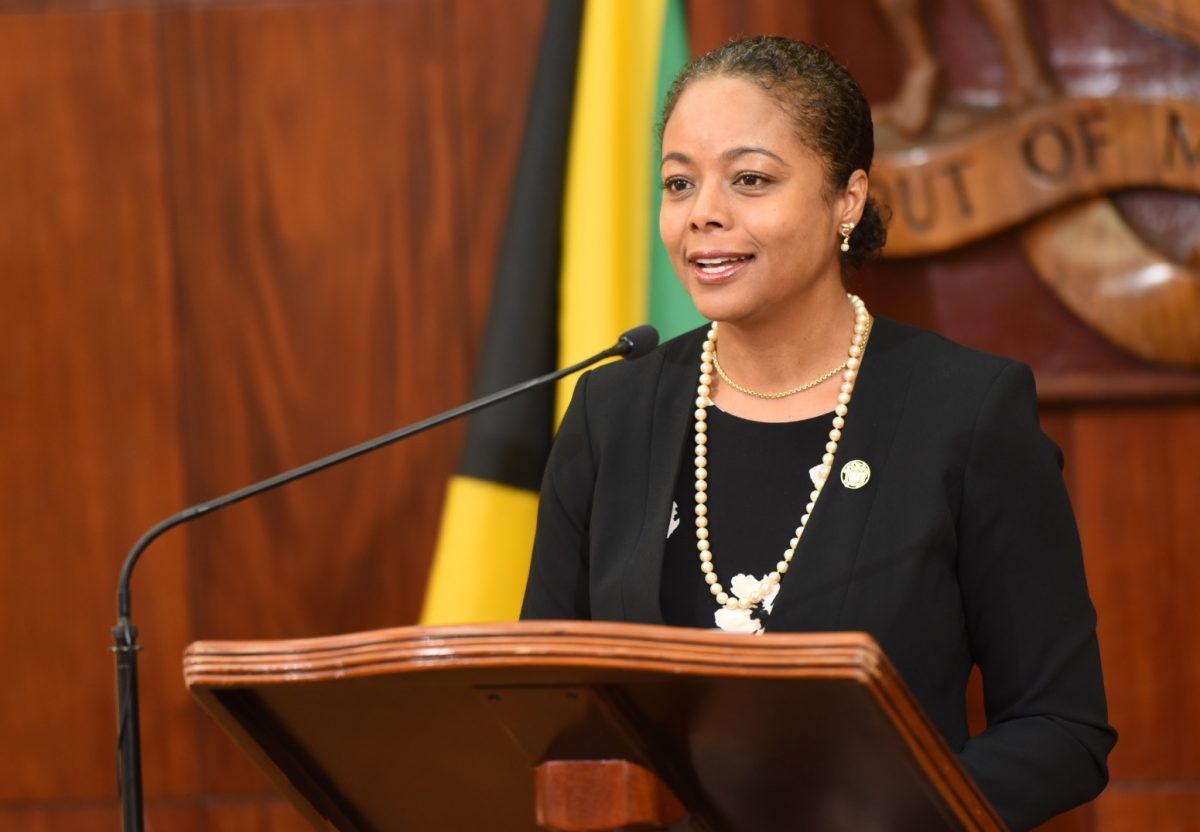(Jamaica Gleaner) Jamaica’s Constitutional Reform Committee (CRC) has arrived at consensus to recommend the abolition of the constitutional monarchy as the form of government and has deliberated on the process by which a president would be selected.
Legal and Constitutional Affairs Minister Marlene Malahoo Forte shared that since the committee was formed, it has held five meetings.
“Once we have abolished the monarchy from the make-up of our form of Government, it will be replaced by the Office of President of the Republic of Jamaica. The president of the Republic of Jamaica is to be a separate office from the head of government of Jamaica,” she said during a press conference held at Jamaica House on Friday afternoon.
On the matter of selecting the president, Malahoo Forte detailed that the consensus is that it will be on the nomination of the prime minister, after consultation with the leader of the opposition, to be confirmed in the Parliament.
“It is our intention to legislate that the two Houses will sit together to make this determination on a special vote,” the minister said.
Further, the committee has arrived at the consensus that any country other than Jamaica will be considered a foreign country.
Malahoo Forte shared that the committee is of the view that the reform will take out of the Constitution any reference to the Commonwealth and any privilege to be attached to Jamaica’s relationship to the bloc will be done in ordinary legislation.
Opposition Member of Parliament Anthony Hylton affirmed that the process has been robust.
“It has been consensual. We have been able to make some decisions and the Opposition remains very much engaged and involved in this very important and historic process,” Hylton said.
Meanwhile, the president of the Jamaica Umbrella Group of Churches, Dr Elaine McCarthy, has been appointed as the committee’s 15th member.
“Indeed it’s a pleasure that the Church’s voice is also being incorporated in this very, very important juncture of our history, and I can assure you that as a Church body, we are listening to the various questions and queries that [are] coming up, and we’ve been having meetings and trying to do some clarification on the matters,” she said.
McCarthy called on the Church community to continue to be in prayer for the committee because God’s help is critical to making the right decisions, which will impact generations to come.
Since the committee was named, calls have been made for Canadian professor Richard Albert to be removed on claims that he has a distinct pro-LGBT and pro-abortion bias. Concerns have also been raised about the appointment of 11 lawyers to the committee and a former army chief as co-chair.
“There is a process by which a committee is named. The concerns that have been raised are noted. I just want to assure Jamaicans that the work is being done in the best interest of the nation,” Malahoo Forte said on Friday.
In his remarks, youth adviser Sujae Boswell said the committee recognises the importance of engaging other young people in the constitutional reform process and there are plans to host youth forums and engage student organisations at the secondary and tertiary levels.
“One of the strategies as well is to actually involve youth on the subcommittees of the CRC. We hope to create a space where young people can have meaningful dialogue about the issues that affect them as well as to offer their own perspectives on the proposed changes within the Constitution,” he explained.
Boswell added that the first engagement will be held next Monday with the executive of the National Youth Council and Malahoo Forte.
Phase One of the reform process is to focus on the repatriation of the Constitution, abolition of the constitutional monarchy, establishment of republican status and all matters within the deeply entrenched provisions of the Constitution for which a referendum is required to amend.

